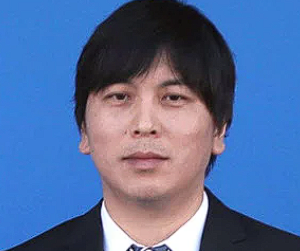In a tale twistier than a knuckleball, Shohei Ohtani’s interpreter, Ippei Mizuhara, finds himself at the center of a federal probe, swapped from the baseball diamond to the harsh lights of legal scrutiny. The allegations? Siphoning over $16 million from Ohtani’s ample coffers—not for emergencies or investments, but to feed a voracious gambling appetite and to amass an enviable collection of baseball cards.
The saga began unassumingly, with Mizuhara stepping into the role of Ohtani’s interpreter and day-to-day manager as the latter ventured from Japan to don the halo of the MLB’s Los Angeles Angels. But behind the scenes, the plot thickened dramatically, with Mizuhara allegedly playing fast and loose with the slugger’s bank accounts.
The crux of the federal case, detailed in a meticulously compiled 37-page complaint, swings on charges of bank fraud with Mizuhara accused of executing a bewildering financial play. He supposedly camouflaged his identity using the alias “Jay Min” to purchase about 1,000 baseball cards from the digital dugouts of eBay and Whatnot. These aren’t just any baseball cards, but premium ones averaging a wallet-lightening $325 apiece.
Deliveries from these clandestine buys were cunningly directed to locales as iconic as the Dodgers’ clubhouse, where they were allegedly stashed away by an unwitting employee. Inside Mizuhara’s vehicle, authorities unearthed a cache of these collectibles ensconced in protective cases—a treasure trove featuring legends like Juan Soto, Yogi Berra, and even cards of Ohtani himself. This smorgasbord of memorabilia wasn’t just for kicks; it was seemingly part of a grander scheme to later sell off the stash, presumably when their value pitched higher.
The feds’ dive into Mizuhara’s dealings unearthed more than just unauthorized shopping sprees; it painted a portrait of a man with a relentless gambling itch. No small-time player, Mizuhara reportedly cast about 19,000 bets with a staggering net loss of $40.7 million. Notably, his betting spree steered clear of Major League Baseball, perhaps a nod to maintaining a facade of professionalism in his day job.
This financial foul play began to unravel when Mizuhara helped a then-new-to-America Ohtani navigate the complexities of banking in the U.S., a seemingly innocent act in 2018 that morphed into a gateway for fiscal misadventures. Despite never receiving the nod to manage Ohtani’s financial affairs, Mizuhara allegedly leveraged their shared trust, morphing it into a covert operation to funnel funds for his personal uses.
U.S. Attorney Martin Estrada didn’t mince words when denouncing the breach of trust, highlighting the extent and audacity of the fraud orchestrated behind the scenes. As the details come to light, Mizuhara’s role transformed from an aide to a principal antagonist in his own right. Additional accusations point to his audacious impersonation of Ohtani to authorize hefty wire transfers to fellow gamblers.
The clock has now ticked down to a critical juncture, with Mizuhara’s initial court appearance looming in downtown Los Angeles. This preparation sets the stage for a judicial showdown that’s as anticipated as a bottom-of-the-ninth duel at the pitcher’s mound.
As this scandal continues to unfold, it serves as a cautionary tale about the pitfalls of misplacing trust and the spiraling consequences that can ensue when large sums of money intersect with unchecked access. How this will affect Ohtani’s career remains to be seen, but for now, the focus tightens on justice being served in this off-field matchup.
